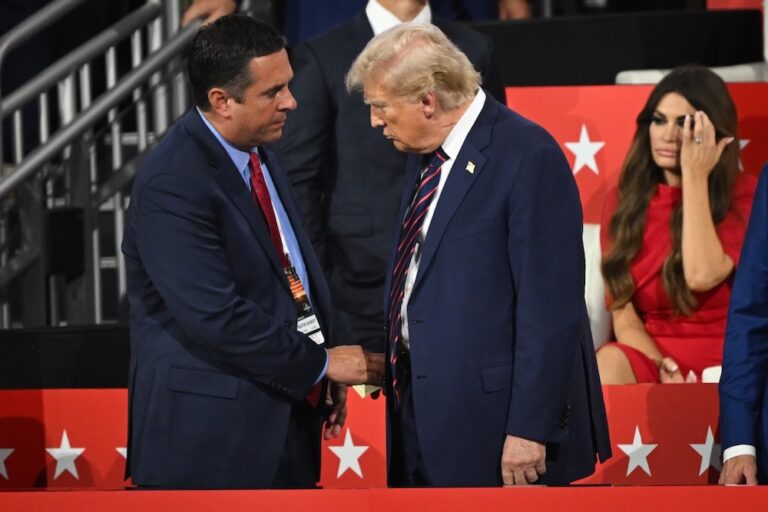(RSF/IFEX) – RSF has condemned the strong criticism expressed by the United States (US) army and Muwaffak al-Rubai, a former member of Iraq’s Governing Council, against the Arabic satellite television stations Al-Arabiya and Al-Jazeera. The authorities have accused the stations of “inciting violence”, “lying” and being “anti-coalition.” The organisation said the accusations “overstepped [reasonable] limits […]
(RSF/IFEX) – RSF has condemned the strong criticism expressed by the United States (US) army and Muwaffak al-Rubai, a former member of Iraq’s Governing Council, against the Arabic satellite television stations Al-Arabiya and Al-Jazeera. The authorities have accused the stations of “inciting violence”, “lying” and being “anti-coalition.”
The organisation said the accusations “overstepped [reasonable] limits and denied the [stations’] right to editorial independence.” RSF urged the Governing Council not to impose any new restrictions on the Arabic-language news media outlets’ ability to work freely in Iraq.
In November 2003, Al-Arabiya was banned and its Baghdad offices were closed for several weeks (see IFEX alert of 25 November 2003). In January 2004, Al-Jazeera was barred from covering the Governing Council’s official activities for one month (see alerts of 3 and 2 February 2004).
RSF said that despite legitimate security concerns, it is unacceptable that the commander of US forces in Iraq and other senior US officials should describe certain news media outlets as “anti-coalition.” Such remarks are dangerous, coming just three weeks after two Al-Arabiya journalists were killed by US gunfire while they were working, the organisation stressed (see alerts of 7 April and 19 March 2004). The officials’ remarks could be interpreted by troops, who have been facing strong resistance, as meaning that some journalists are enemies and therefore legitimate military targets.
Al-Rubai’s threats to close and expel Al-Jazeera and Al-Arabiya do nothing to help establish a climate of trust between journalists and the authorities in the country, RSF said. On the contrary, they are evidence of a restrictive view of press freedom, the organisation added. Al-Rubai was recently appointed as Iraq’s national security advisor for a five-year term.
An Al-Jazeera spokesman said the network reports the news professionally and also interviews American officials “to be as balanced as possible.” The station “does not play politics and is neither with or against any [party to the conflict],” he said. Al-Arabiya editor-in-chief Salah Nejm said Iraq was a free country and his network uses press freedom responsibly to cover “all sides of the story.”
On 12 April, during his daily Baghdad press conference, General Mark Kimmitt, the deputy chief of military operations in Iraq, said “anti-American sentiment is being stirred up by Al-Jazeera and other media outlets opposed to the coalition.”
Meanwhile, the commander of US forces in Iraq, General John Abizaid, accused Al-Jazeera and Al-Arabiya of “lying” about the US army’s operations in Falluja. Also on 12 April, al-Rubai threatened to shut down Al-Jazeera’s and Al-Arabiya’s offices if the stations “continued to incite violence and sedition.” “There is no doubt in my mind that if they continue reporting in the way they are reporting now (. . .) there is no question that they should be shut down is this country,” he added.


